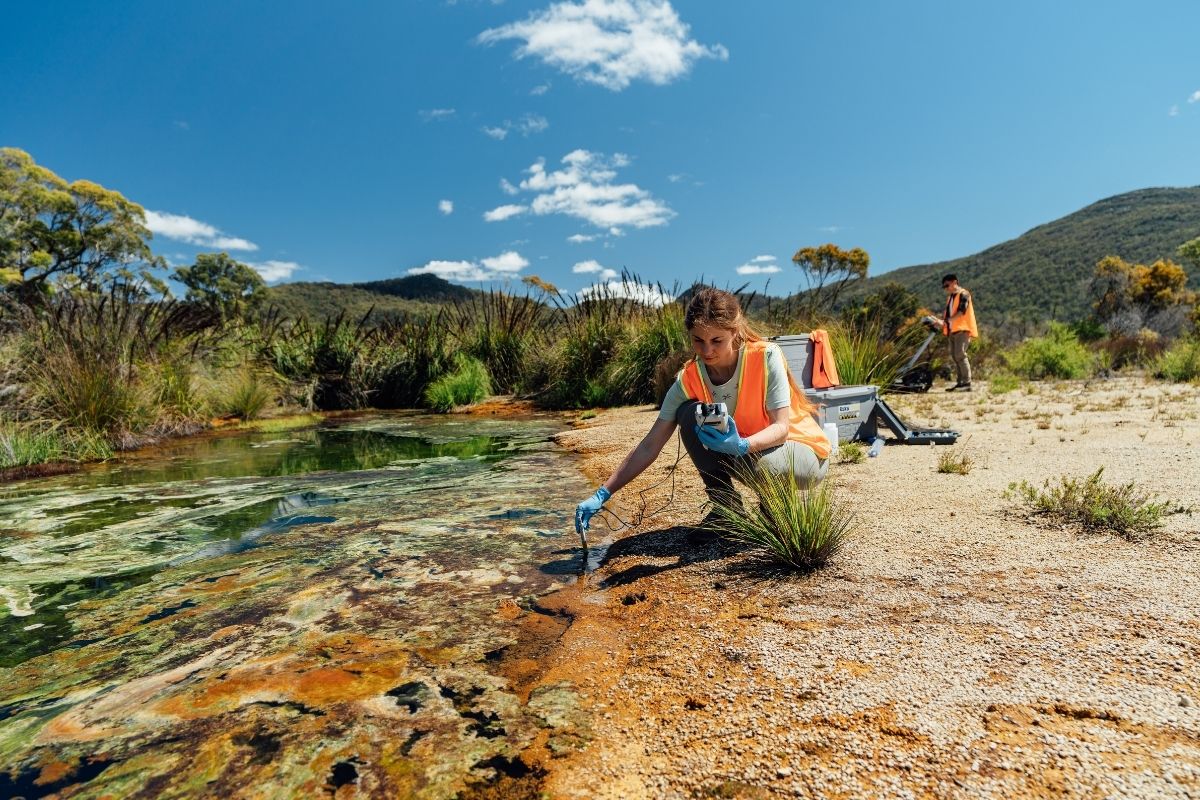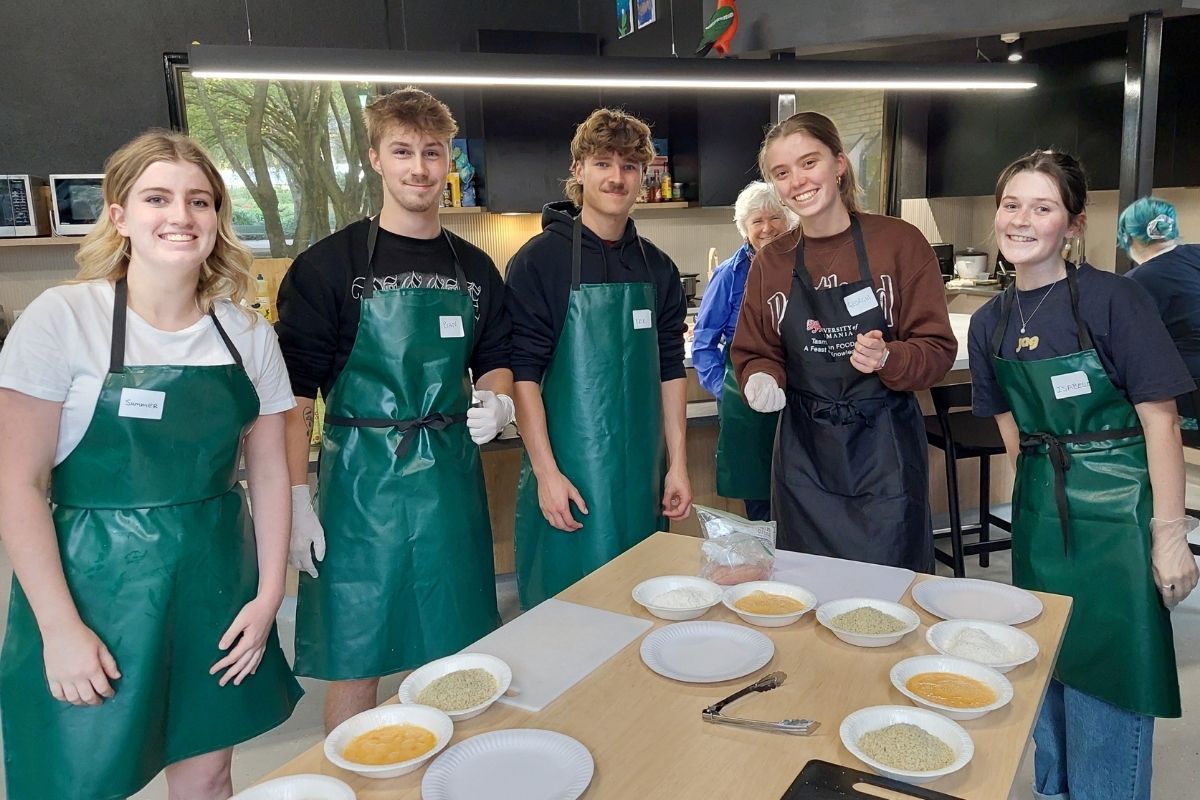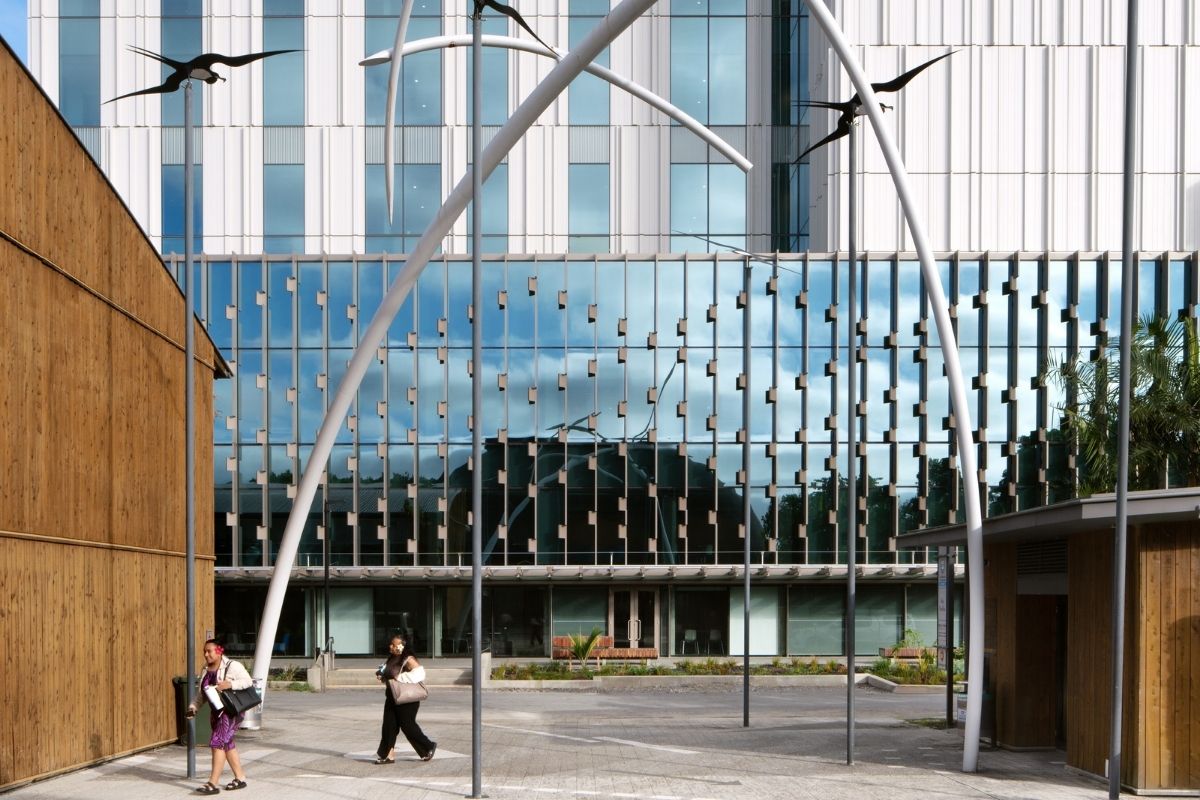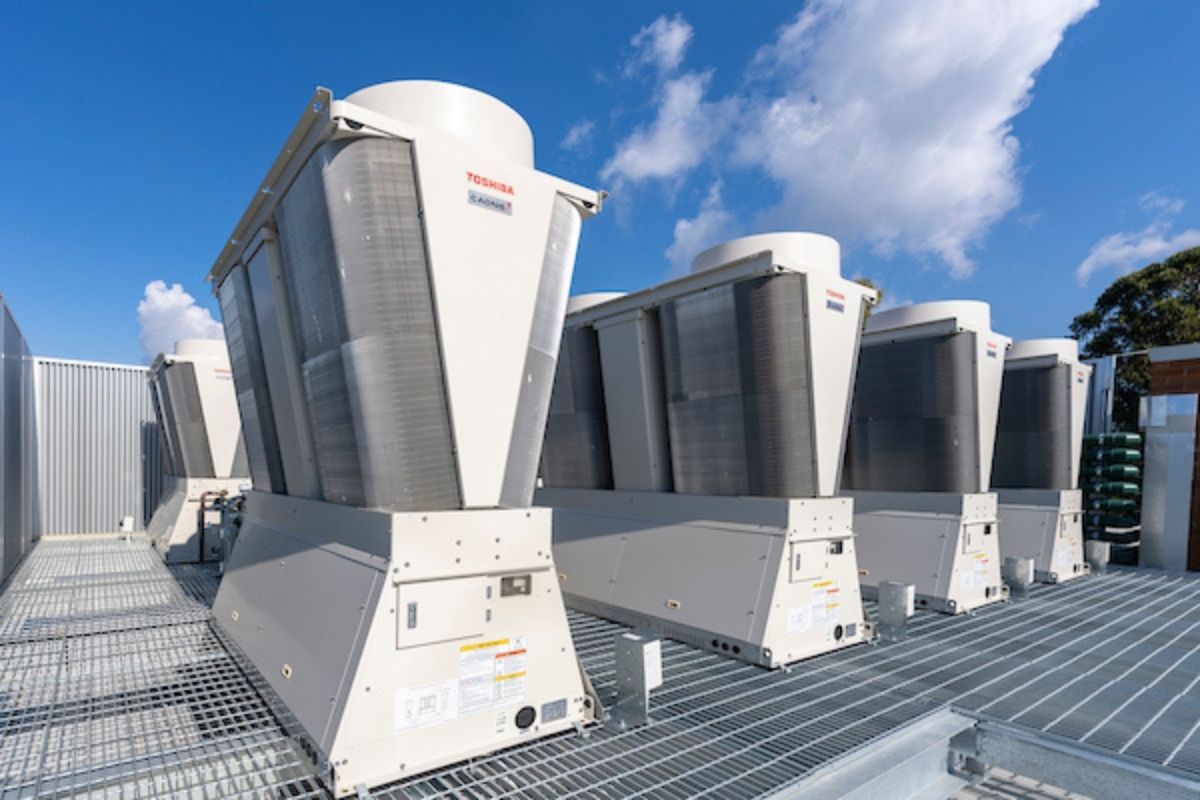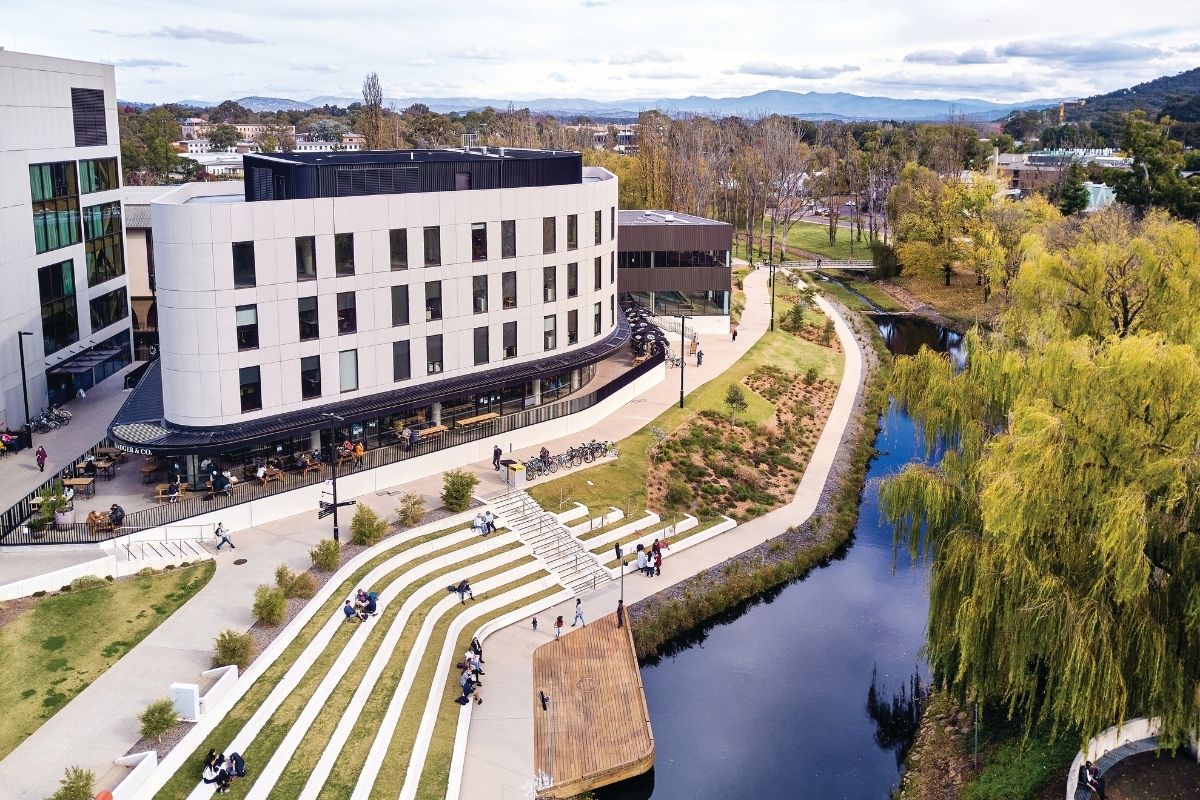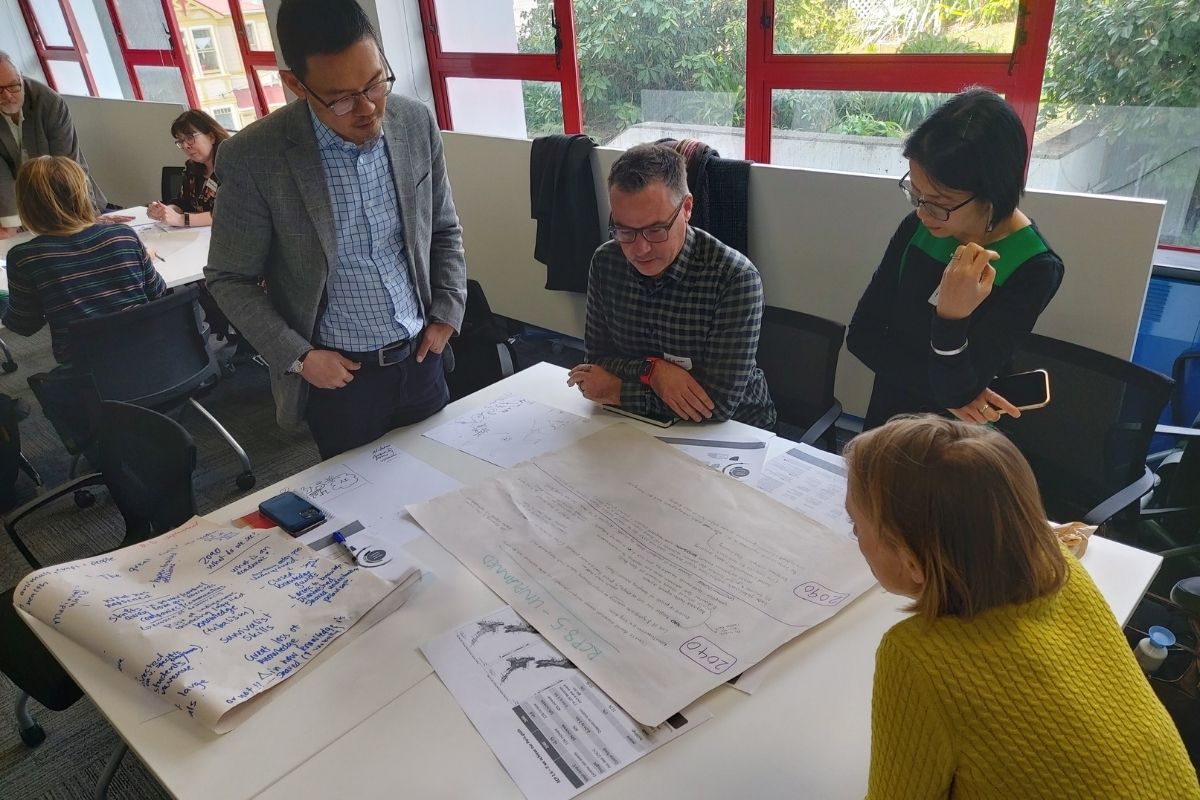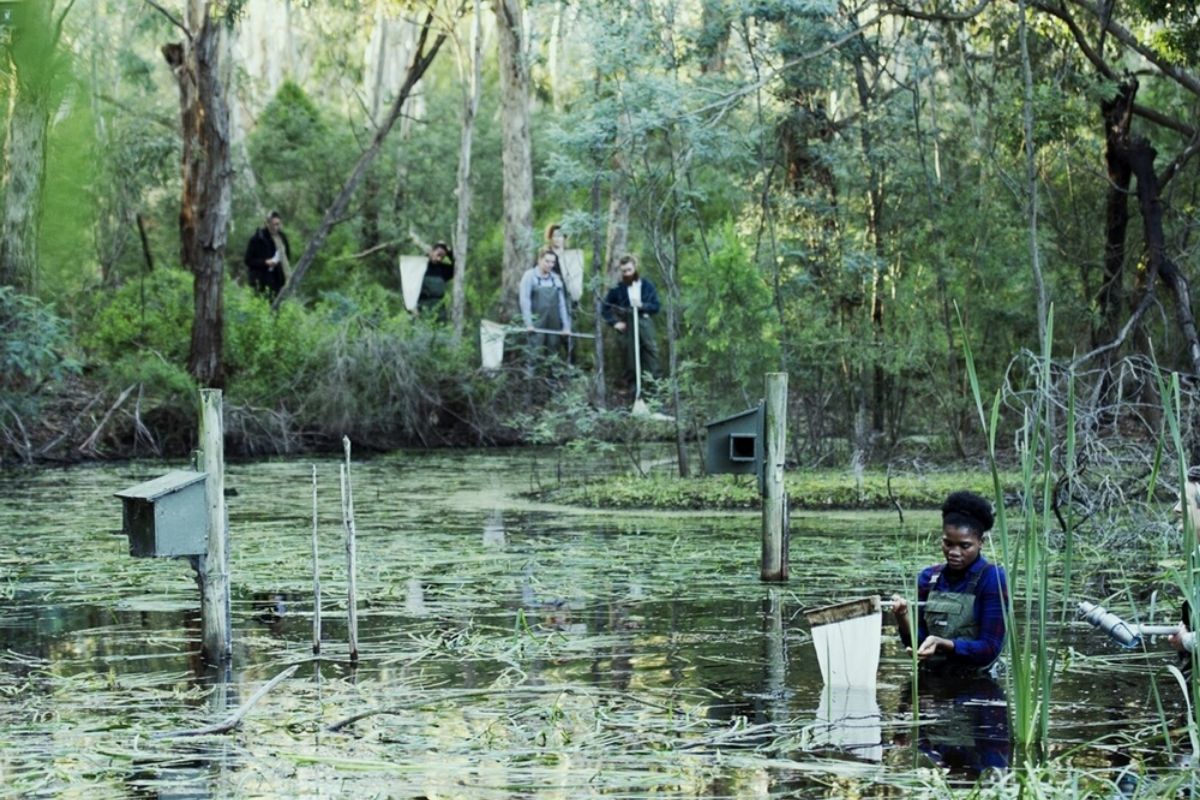Climate Action/Winners category
The University of Tasmania (UTAS) has undertaken a comprehensive and innovative climate action approach aimed at significantly reducing its carbon footprint and promoting sustainability. UTAS achieved carbon neutral certification in 2016 through the Commonwealth Climate Active program. Subsequently, the university joined the Race to Zero campaign, completed fossil fuel divestment, implemented the Curious Climate Schools outreach program and became the first Australasian signatory of the CANIE Accord. In 2022, UTAS published its Emissions Reduction Strategic Plan (ERSP) for 2022-2030, outlining 42 actions across all three emission scopes to reduce gross emissions by at least 50% by 2030, based on 2015 levels. This approach and the significant contribution to climate science have earned UTAS the top global ranking for SDG13 Climate Action in the Times Higher Education Impact Rankings for 2022, 2023, and 2024. UTAS has tabled its 2023 Annual Report in the Tasmanian Parliament, addressing proposed climate and sustainability risks reporting requirements, and is now implementing an ‘internal carbon budget’ to drive behaviour change towards reducing carbon emissions.
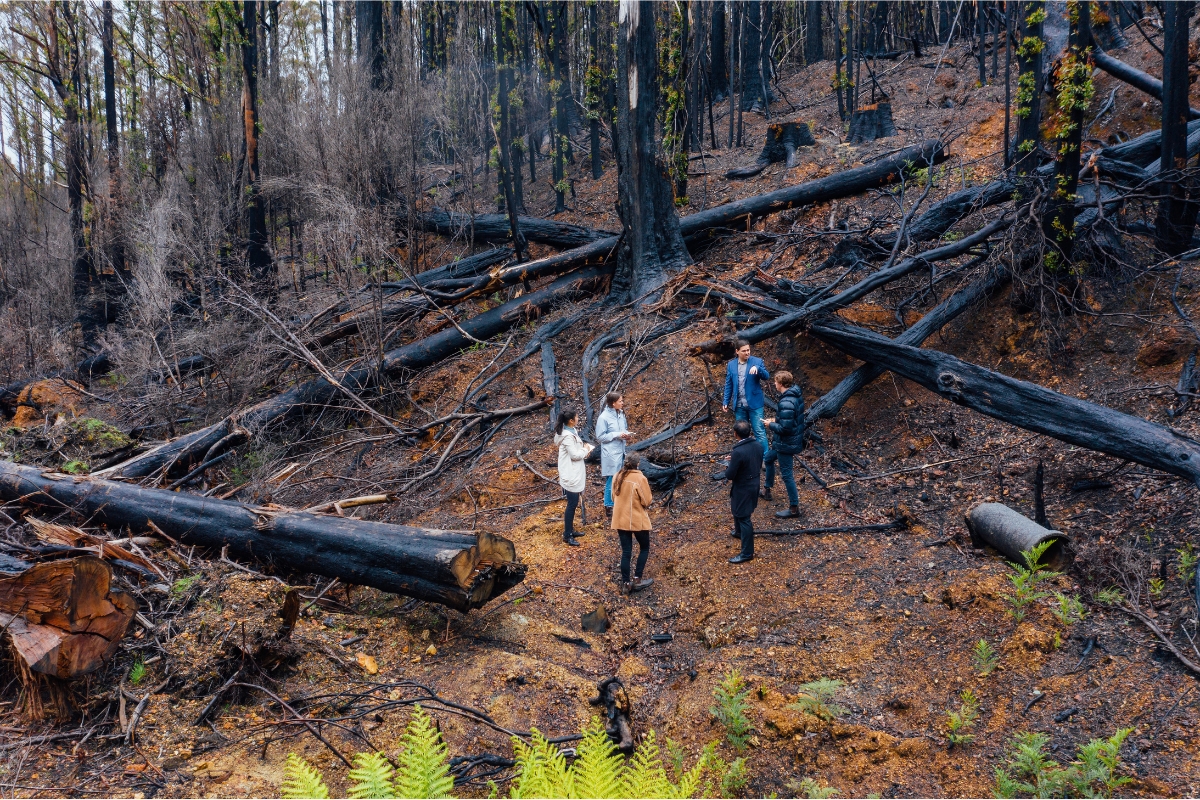
Environmental and Social Benefits
- Emission Reductions: UTAS’s initiatives have led to substantial carbon emissions reductions, as detailed in the ERSP and the annual Climate Active Public Disclosure Statements. Key projects include the installation of solar systems, reducing natural gas use, energy efficiency upgrades, electrifying the vehicle fleet, and implementing flexible working arrangements.
- Resource Conservation: The ERSP emphasises minimising waste through initiatives like the Re-Use program and on-site composting, which contribute to a circular economy and reduced greenhouse gas emissions.
- Social Empowerment: The ERSP supports empowering staff and students through sustainability programs, enabling them to actively participate in and lead climate action projects, fostering a culture of sustainability across the university.
Leadership and Engagement
- Student and Staff Involvement: Over 2,650 students have participated in the Sustainability Integration Program for Students (SIPS) since 2012, with more than 250 working directly on climate action projects, aligning with the ERSP’s goals of comprehensive community involvement.
- Community Engagement: The ERSP has facilitated engagement with local and state governments, businesses, and NGOs to advance climate action initiatives. This includes the Climate Action Network for International Educators (CANIE) and as founding members of the Climate Action Barometer – international education (CAB).
- Policy Influence and Partnerships: The ERSP has guided UTAS through the Tasmanian Policy Exchange in contributing to policy discussions and legislative developments, providing evidence-based recommendations to support Tasmania’s climate goals.
Significance to the Sector
- Global Recognition: The ERSP has contributed to UTAS being the #1 global university for SDG13 Climate Action in the Times Higher Education Impact Rankings for three consecutive years (2022-2024).
- Innovative Practices: The ERSP’s holistic approach to climate action, including its internal carbon budgeting mechanism and focus on embodied carbon reduction in building projects, sets a benchmark for other institutions.
- Educational Leadership: Through initiatives like the Curious Climate Tasmania program, the ERSP has advanced climate education, engaging over 100 primary and high school classes and addressing more than 600 climate-related questions.
Wider Societal Impact
- Economic and Social Co-Benefits: The ERSP’s carbon offset strategy seeks to provide local employment, protect cultural practices, and enhance environmental awareness. The university’s efforts in sustainable procurement and circular economy practices have influenced broader industry standards.
- Global Influence: As a founding member of the Climate Action Barometer in International Education, the ERSP has enabled UTAS to contribute to global sustainability benchmarks and support international education’s role in addressing climate change.
The University of Tasmania’s climate action initiative, driven by the Emissions Reduction Strategic Plan, exemplifies a comprehensive and impactful approach to sustainability. Through innovative projects, strong leadership, and broad engagement, UTAS has significantly reduced its carbon footprint, influenced policy, and empowered its community, making substantial contributions to local and global climate goals.
Top 3 learnings
Category finalists
Sustainability Institution of the Year/Winners
Sustainability Institution of the Year/Winners
Creating Impact/Winners
Creating Impact/Winners
Next Generation Learning & Skills/Winners
Next Generation Learning & Skills/Winners
Student Engagement/Winners
Student Engagement/Winners
Climate Action
Climate Action
Climate Action
Climate Action
Climate Action/Highly Commended
Climate Action/Highly Commended
Powerful Partnerships/Winners
Powerful Partnerships/Winners
Diversity, Equity and Inclusion/Winners
Diversity, Equity and Inclusion/Winners
Nature Positive/Winners
Nature Positive/Winners
Staff Champion/Winners
Staff Champion/Winners
Student Champion/Winners
Student Champion/Winners
Past winners
Benefitting Society/Winners
Benefitting Society/Winners
Diversity, Equity & Inclusion in Sustainability/Winners
Diversity, Equity & Inclusion in Sustainability/Winners
Climate Action/Winners
Climate Action/Winners
Sustainability Institution of the Year/Winners
Sustainability Institution of the Year/Winners
Creating Impact/Winners
Creating Impact/Winners
Creating Impact/Winners
Creating Impact/Winners
Top 3 learnings
Climate Action/Winners category
The University of Tasmania (UTAS) has undertaken a comprehensive and innovative climate action approach aimed at significantly reducing its carbon footprint and promoting sustainability. UTAS achieved carbon neutral certification in 2016 through the Commonwealth Climate Active program. Subsequently, the university joined the Race to Zero campaign, completed fossil fuel divestment, implemented the Curious Climate Schools outreach program and became the first Australasian signatory of the CANIE Accord. In 2022, UTAS published its Emissions Reduction Strategic Plan (ERSP) for 2022-2030, outlining 42 actions across all three emission scopes to reduce gross emissions by at least 50% by 2030, based on 2015 levels. This approach and the significant contribution to climate science have earned UTAS the top global ranking for SDG13 Climate Action in the Times Higher Education Impact Rankings for 2022, 2023, and 2024. UTAS has tabled its 2023 Annual Report in the Tasmanian Parliament, addressing proposed climate and sustainability risks reporting requirements, and is now implementing an ‘internal carbon budget’ to drive behaviour change towards reducing carbon emissions.

Environmental and Social Benefits
- Emission Reductions: UTAS’s initiatives have led to substantial carbon emissions reductions, as detailed in the ERSP and the annual Climate Active Public Disclosure Statements. Key projects include the installation of solar systems, reducing natural gas use, energy efficiency upgrades, electrifying the vehicle fleet, and implementing flexible working arrangements.
- Resource Conservation: The ERSP emphasises minimising waste through initiatives like the Re-Use program and on-site composting, which contribute to a circular economy and reduced greenhouse gas emissions.
- Social Empowerment: The ERSP supports empowering staff and students through sustainability programs, enabling them to actively participate in and lead climate action projects, fostering a culture of sustainability across the university.
Leadership and Engagement
- Student and Staff Involvement: Over 2,650 students have participated in the Sustainability Integration Program for Students (SIPS) since 2012, with more than 250 working directly on climate action projects, aligning with the ERSP’s goals of comprehensive community involvement.
- Community Engagement: The ERSP has facilitated engagement with local and state governments, businesses, and NGOs to advance climate action initiatives. This includes the Climate Action Network for International Educators (CANIE) and as founding members of the Climate Action Barometer – international education (CAB).
- Policy Influence and Partnerships: The ERSP has guided UTAS through the Tasmanian Policy Exchange in contributing to policy discussions and legislative developments, providing evidence-based recommendations to support Tasmania’s climate goals.
Significance to the Sector
- Global Recognition: The ERSP has contributed to UTAS being the #1 global university for SDG13 Climate Action in the Times Higher Education Impact Rankings for three consecutive years (2022-2024).
- Innovative Practices: The ERSP’s holistic approach to climate action, including its internal carbon budgeting mechanism and focus on embodied carbon reduction in building projects, sets a benchmark for other institutions.
- Educational Leadership: Through initiatives like the Curious Climate Tasmania program, the ERSP has advanced climate education, engaging over 100 primary and high school classes and addressing more than 600 climate-related questions.
Wider Societal Impact
- Economic and Social Co-Benefits: The ERSP’s carbon offset strategy seeks to provide local employment, protect cultural practices, and enhance environmental awareness. The university’s efforts in sustainable procurement and circular economy practices have influenced broader industry standards.
- Global Influence: As a founding member of the Climate Action Barometer in International Education, the ERSP has enabled UTAS to contribute to global sustainability benchmarks and support international education’s role in addressing climate change.
The University of Tasmania’s climate action initiative, driven by the Emissions Reduction Strategic Plan, exemplifies a comprehensive and impactful approach to sustainability. Through innovative projects, strong leadership, and broad engagement, UTAS has significantly reduced its carbon footprint, influenced policy, and empowered its community, making substantial contributions to local and global climate goals.
Related finalists
Sustainability Institution of the Year/Winners
Sustainability Institution of the Year/Winners
Creating Impact/Winners
Creating Impact/Winners
Next Generation Learning & Skills/Winners
Next Generation Learning & Skills/Winners
Student Engagement/Winners
Student Engagement/Winners
Climate Action
Climate Action
Climate Action
Climate Action
Climate Action/Highly Commended
Climate Action/Highly Commended
Powerful Partnerships/Winners
Powerful Partnerships/Winners
Diversity, Equity and Inclusion/Winners
Diversity, Equity and Inclusion/Winners
Nature Positive/Winners
Nature Positive/Winners
Staff Champion/Winners
Staff Champion/Winners
Student Champion/Winners
Student Champion/Winners
Other finalists
Climate Action

Driving Towards Tomorrow’s Campus with Vehicle-to-Grid EV Technology
As part of Flinders University’s drive to innovate and become a leader in climate action, the University launched its Vehicle-to-Grid (V2G) initiative. This involved installing and maintaining 20x V2G and smart chargers for its growing electric vehicle fleet. Leveraging 100% renewable energy generated by ENGIE’s Willogoleche Wind Farm and Flinders University’s solar power systems, this enables the storage of renewable energy in EV batteries to be discharged on campus during peak demand periods. Hence, allows for these EV fleets to operate as a Virtual Power Plant (VPP) to deliver peak demand management and optimization of behind-the-meter generation.
Overall, this initiative demonstrates the reliability and scalability of bi-directional and uni-directional smart-charging systems for EVs in reducing GHG emissions while facilitating teaching, research, and innovation opportunities. Moreover, it exemplifies a sustainable and innovative solution to scale energy storage technology and increase renewables.
Sustainability Champion – Staff/Winners

Brandan Espe
Environmental Officer / Acting Grounds Supervisor
Brandan has brought over 50 federally listed Endangered species of plant into the James Cook University living collection, many of which have never been cultivated and are found in no other collection in the world.
Of these, over half have been sustainably wild collected, inclusive of field and clone data, so they can be used for ongoing conservation, research and teaching, the remaining being sourced from private and partner organisations through favours of service or trades.
He personally funded the project from 2019-2022, until funding was awarded for the program due to its success, with the program now being engrained into the Universities landscapes for ongoing management should he leave JCU, creating a threatened species legacy collection.
The program has now expanded beyond this, with an additional 48 species now funded for further addition, some of which are only known from less than 5 sightings in history.
Student Engagement

Sustainability Leaders creating real impact!
La Trobe created a unique Sustainability Leaders volunteering program to increase engagement with students on campus and empower them to act against waste and promote sustainability. It included the following initiatives:
- Promoting the reusable crockery implementation,
- Increasing knowledge action of other students on campus to diversion comingled recycling and organic waste from landfill.
- Focus on waste audits and data,
- Improved signage through new waste posters for students living on campus.
- Collaboration with Cirka (our cleaning and waste partner) to create a waste wall and;
- Learning all things sustainability (net zero, biodiversity, waste, reusables, engagement)
These initiatives yielded significant results and with a reduction in waste contamination by almost 40% at the residential buildings and engagement with over 80 groups of people for the Reusable Revolution.
Creating Impact

Where knowledge meets habits: Empowering students for a sustainable tomorrow
Our online Sustainability Challenges offer participants an engaging, self-paced learning experience centered around a specific United Nations Sustainable Development Goal (UNSDG). Requiring minimal resourcing and at zero-cost to participants, we’ve created replicable, compact, scalable, and impactful learning opportunities that result in real impact.
The Challenges follow a structured process that moves participants from knowledge gain to simple action to celebration, to establish small but mighty habits relating to waste and carbon emissions. This approach recognises that knowledge alone is often insufficient to drive behaviour change, and that ease of action and celebration are crucial components in creating sustainable habits.
Sustainability Champion – Staff/Winners

Catherine (CeeJay) Donovan
Veterinary nurse – Anaesthesia
From establishing the Massey Vet School Green Team to leading impactful initiatives, my commitment to environmental sustainability has been making waves. With the help of my team, I have accomplished numerous small, yet meaningful actions, including integrating a sustainability lecture for final year vet students and implementing battery recycling alongside rechargeable battery use. Our larger projects encompass the introduction of green waste and soft plastics recycling bins, an energy audit resulting in power-saving measures, and playing a part in a successful rubbish audit. I spearheaded the ‘6 in 6’ campaign, empowering individuals with six simple steps for workplace sustainability. Through the SustainaVet social media pages I help to educate and inspire peers nationwide. As the Massey School of Veterinary Science sustainability champion, I had the privilege of speaking at the annual veterinary conference on sustainability in clinical practice. Currently I’m conducting pioneering research on responsible cat waste disposal. Together, we’re forging a greener future, one initiative at a time.
Sustainability Champion – Student

Louis Walmsley
SDG Coordinator Monash Association of Sustainability, Office Bearer Monash Student Association’s Environmental and Social Justice Department, Masters of Environment and Sustainability Student
Louis is an exceptional student sustainability leader at Monash University. His passion and dedication to sustainability have made a significant impact on the community. Louis’s values revolve around sustainability, which is evident upon meeting him. He actively participates in various sustainability groups, demonstrating his commitment to creating a more environmentally conscious society.
One of Louis’s notable involvements is with Precious Plastic Monash, where he organizes remarkable events and fosters collaboration among like-minded individuals, student groups, and staff. His contributions to the Monash Association of Sustainability have allowed him to conduct valuable research on plastic usage and climate action, resulting in positive changes within the university.
Through his work with the Monash Student Association, Louis has engaged hundreds of students in fun and interactive sustainability initiatives. He took the initiative to organize a sustainability food fair, which was one of the largest sustainability-related events held at Monash post-COVID. This accomplishment is a true testament to Louis’s hard work and creativity.
Louis is an outstanding student leader whose efforts in sustainability have had a lasting impact on Monash University and its community. His inspiring nature resonates with everyone who knows him.







